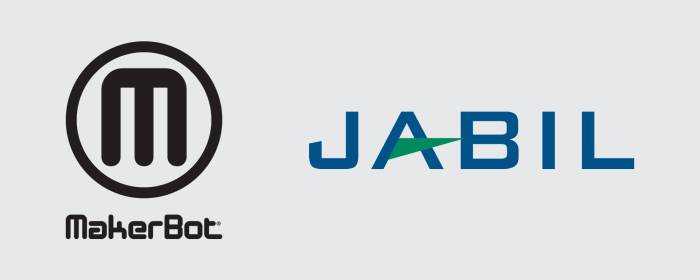MakerBot will no longer make their own 3D printers, outsourcing to supply chain specialist Jabil and closing down their factory in Brooklyn.
MakerBot will no longer manufacture its own hardware, CEO Jonathan Jaglom announced last night.
In the next six months, the company will move the production of its 3D printers and other products to Jabil, a contract manufacturer headquartered in the U.S. with international production facilities.
The company will also be winding down their manufacturing operations in the Industry City complex in Brooklyn, New York, and make an undisclosed number of staffers redundant.
MakerBot’s headquarters and its other teams — design, engineering, logistics, and repairs — will remain in place in Brooklyn.
Jaglom said he is trying to position MakerBot to meet the consumer demand that will develop up in the near future, while staying competitive with rival companies selling 3D printers that are cheaper with more features and greater reliability.
“To achieve our long-term goals, we also need to be able to navigate the volatility of an emerging market. Working with Jabil will position us to better manage the rapid change in our industry and reduce our manufacturing costs to compete more effectively in a global marketplace. We expect that adopting a flexible manufacturing model will allow us to quickly scale production up or down based on market demands, without the fixed costs associated with maintaining a factory in New York City.”
Last month, Crains reported that MakerBot was relinquishing an additional 90,000 square feet at Industry City.
This report was framed within the context of the staff layoffs made last October, when MakerBot announced that it was leaving one of the Industry City buildings the company occupied. Now it appears that this was groundwork for partnership with Jabil.
Moving forward, MakerBot will occupy only 135,000 square feet at Industry City, nearly half the amount of space it occupied last summer.

The Wrong Kind of Milestone for MakerBot
This latest development is a further test of good-will with the 3D printing community, who have become increasingly frustrated with the company. Coming so soon after the announcement that the company had sold 100,000 3D printers worldwide, this is pretty much the Maker Milestone that nobody wanted.
Started in 2009, MakerBot spearheaded the consumer desktop 3D printing revolution, and then made the controversial decision to turn away from open-source 3D printers in 2012. Soon after it was acquired by industrial 3D printing giant Stratasys, co-founder and CEO Bre Pettis departed to grow a large beard, and the company had quality control issues with the Smart Extruder on their 5th generation Replicator printers.
But in his statement, Jaglom was keen to emphasize the support provided by Stratasys, specifically in product development and their experience in supply chain logistics:
“Our parent company, Stratasys, is also helping us manage this transition. Last year, we started partnering more closely with Stratasys on key initiatives such as quality assurance and product development, and we continue to benefit from Stratasys’ 25 years of experience in the 3D printing industry. Stratasys has a long history of working with a variety of manufacturing partners, which is yet another area where we can benefit from their deep knowledge and expertise.”
License: The text of "MakerBot Outsources 3D Printer Manufacturing" by All3DP is licensed under a Creative Commons Attribution 4.0 International License.